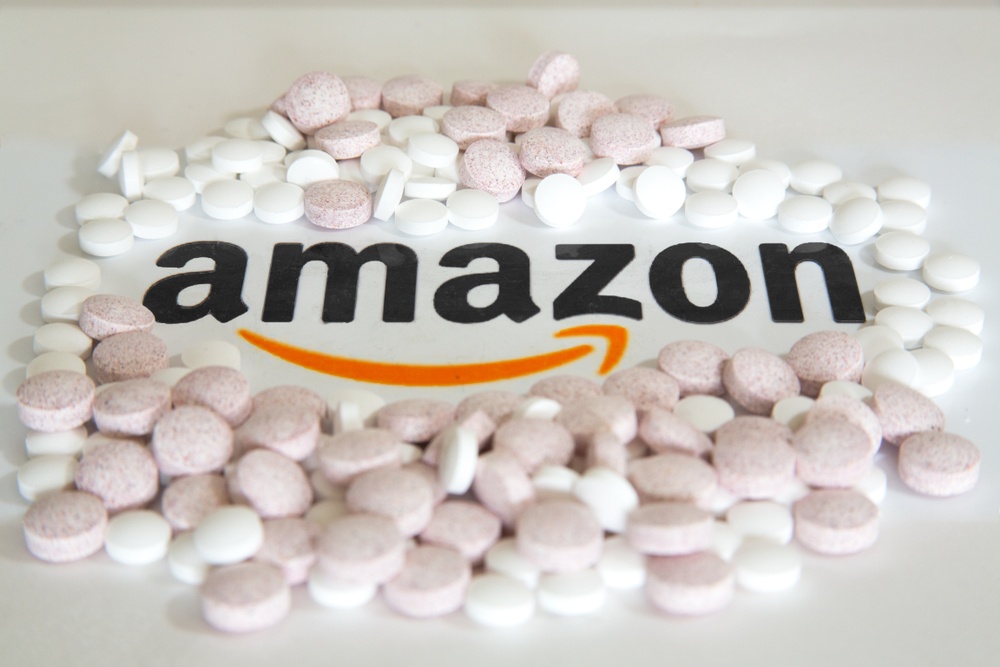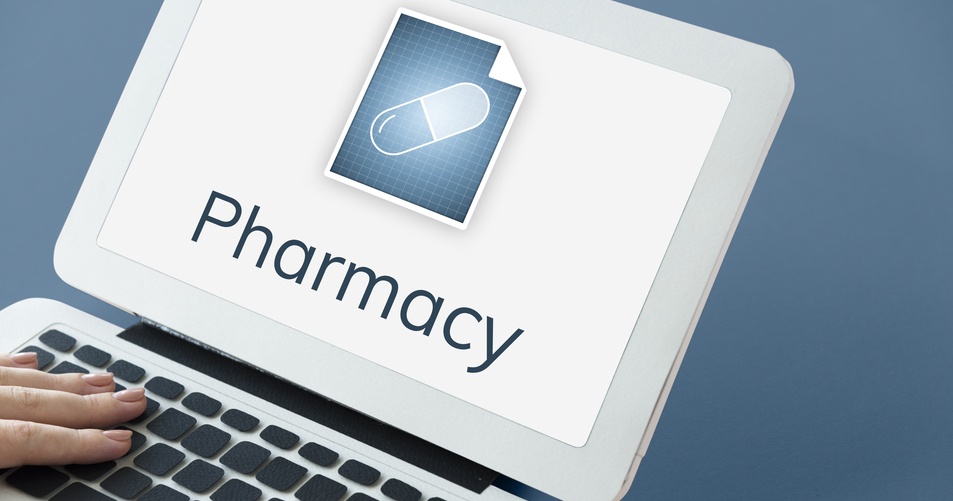



Get new exclusive access to healthcare business reports & breaking news




Amazon’s pharmacy plans include rapid expansion into the trillion-dollar healthcare care and insurance sector, creating a buffet of healthcare-related acquisitions, rolling out expedited drug shipping, and drug discounting–and perhaps shaping the pharmacy of the future.
Established in 1994 by Jeff Bezos, Amazon has burgeoned from a little-known online bookstore to become the world’s largest e-retailer, with its product portfolio now including everything from diapers and baby food to healthcare and home cleaning services.
This Seattle-based retail giant is always at the forefront of technology and business innovation, with nifty projects like drone delivery service Prime Air and smart speaker assistant Alexa rocking the consumer and business worlds alike.
On its remarkable way to becoming one of the most valued brands in history, Amazon has made a vigorous foray into nearly every market, including logistics, apparel & clothing, electronics, cloud computing, government services, education … the list goes on and on.
More recently, however, Amazon has made major inroads into the heart of the American healthcare industry, causing a seismic shift in the world of the drug prescription and supply chain. It all started in 2018 when it paid a steep price of nearly $1 billion to acquire the mail-order online pharmacy PillPack, outbidding its closest rival Wal-Mart.
With the purchase of PillPack, Amazon not only set its eyes firmly on the retail pharmacy business, but it’s also slowly including branding.
Amazon’s branding strategy started with the online pharmacy’s name change to ‘PillPack by Amazon Pharmacy.’ In this respect, PillPack is, in essence, being transformed into an Amazon Pharmacy brand, thus effectively becoming able to take on market leaders like CVS Health, Wal-Mart, and Walgreens Boots Alliance (WGA), amongst others.
We’ve put together this explainer article to present a holistic view of how Amazon is planning to cause major disruptions in the pharmacy industry.
The US pharmacy market alone is worth a whopping $312.6 billion, with an uptick of roughly 3 percent from 2018. Across the pond, the UK pharmacy sector is estimated to be valued at $15.52 billion and is growing steadily at an annual rate of 2 percent.
Of all pharmacy industry sectors, the online pharmacy business is the one that’s driving rapid market growth almost exclusively. Today, the global online pharmacy business is a mammoth of an industry, expected to grow at a CAGR of 14.26 percent to reach $107.53 billion by 2025, according to Zion Market Research.
CVS Health, one of the market leaders, announced annual revenues of $64.81 billion after its acquisition of global health insurer, Aetna. The online pharmacy wing of the Fortune 500 Company has grown exponentially since adding Soma.com to its portfolio.
The remarkable growth of CVS Health in the past few years is a clear indicator that the US public has an insatiable demand for online pharmacy services.
However you look at it, the online pharmacy sector is a huge market worth billions of dollars, and Amazon wants its piece of the pie. Its major retail competitors Target, Costco and Wal-Mart have all implemented in-store pharmacies.
In each of the 50 US states, PillPack holds a pharmaceutical license, which will act as a perfect springboard for Amazon to establish its physical footprint faster and far more effectively. With Whole Foods in its fold too, the retail company will have no trouble setting up in-store pharmacies to complement PillPack’s online business.
Amazon’s foray into the pharmacy realm is, in part, because the US healthcare and insurance industries are riddled with inefficiencies. As a company that made its name primarily because of its hyper-focus on customer service and efficiency, Amazon is a match made in heaven for the retail pharmacy business.
Considering the market opportunity and size, as well as its dominant position as an innovator, it’s not difficult to understand why Amazon wants to dig into the pharmacy industry.


Clearly, the e-pharmacy sector would be an excellent fit for the retail giant, and it definitely seems as though Amazon is gearing up to conquer the market. But the bigger question is: why would this e-commerce behemoth want to take over the pharmacy market?
Let’s find out why, shall we?
Since its inception, Jeff Bezos has always pivoted Amazon on the principles of excellent customer service, unmatched efficiency, and greater choice. That’s exactly what the problematic pharmacy market needs right now.
The existing pharmacy supply chain in the United States is replete with middlemen, highly convoluted, and jam-packed with unnecessarily complex business models. For instance, did you know that a drug has to pass through at least three parties from the drug-maker to the patient?
The trouble is that each middleman hives off a percentage of the profit, inflating the final price that the payers and the patient will pay. The e-commerce giant has the technology, ethos, and framework to streamline the entire pharmaceutical supply chain and rally the overall experience for the drug makers, insurance companies and patients.
This is why Amazon paid top dollar for PillPack. The online pharmacy brand is a darling of the customer, scoring 80 points on the NPS scale, dwarfing a pharmacy median of 26.
Cash-pay prescriptions account for about $250 million annually, a figure that Amazon is eyeing jealously, knowing they can capitalize on it by providing cash-paying patients with deeply discounted prices via PillPack.
As you might expect, cash-pay prices tend to vary from one pharmacy to another, which is why it’ll be a good ground for Amazon to test its pharmaceutical products. Of course, Amazon has to invest heavily in the hefty component of the supply chain to be able to offer cheaper cash-pay prices than health insurance companies offer.
As mentioned, Wal-Mart, CVS, Costco, and Target all have in-store pharmacies that can help them fill same-day prescriptions.
In order to reinforce PillPack’s mail-order pharmacy service, Amazon will have to set up in-store pharmacies in Whole Foods, or partner with retail pharmacies. Alternatively, the company can build an independent retail pharmacy.
The PBM managers’ job is to negotiate rebates from drug manufacturers and design benefit plans. However, the existing PBM model is complicated by middlemen.
In a recent survey involving over 80 large US employers in the US, 70 percent of the respondents claimed that they were willing to switch to an alternative to the current PBM model. Approximately 30 percent reported they didn’t understand their contract with their pharmacy benefits managers.
Amazon can provide the same benefits and functions conventionally offered by PBMs to both healthcare providers and small health plans. The beauty of it all is that Amazon that can do this at a near-zero margin because these services are complementary to its retail pharmacy segment.
The e-retail company has already developed an elaborate shipping and delivery system that will integrate smoothly into its pharmacy supply chain ambitions.
The DSCSA (Drug Supply Chain Security Act) coming into force in 2023 requires that all pill bottles should be traceable from end to end. Additionally, all parties involved in the pharmacy supply chain should be part of a universal interoperable tracking system.
In addition to pharmacy licenses held by PillPack in all 50 US states, Amazon has also applied for wholesale pharma licenses. That means Amazon only requires a manufacturer’s license to be able to get medication from start to finish without stepping outside of its supply chain.
With a robust logistics framework and the requisite licenses, the company could run a fulfillment system for healthcare companies much like the existing Fulfillment by Amazon (FBA) service. More importantly, it can meet all interoperability and tracking requirements called for by the DSCSA.
No matter how you look at it, Amazon can easily take over the pharmacy market. Perhaps the only absent thing is the cold-chain system enabling Amazon to legally and safely transport pharmaceutical drugs.


Before Amazon can take over the pharmacy sector, it must first find its footing in the market. In the past few years, Amazon has been positioning itself to compete in the pharmacy space via strategic acquisitions.
PillPack is Amazon’s biggest acquisition in healthcare yet, with a reported price tag of $753 million. A mail-order e-pharmacy company with licenses in all fifty states in the US, PillPack’s target audience is patients with the need to manage chronic and complex ailments such as diabetes.
For a couple of years, PillPack has been cultivating an amicable relationship with this crucial patient segment and is expected to make an average of $5,000 per annum per patient for Amazon in both cash and insurance payments.
At the core of its business, PillPack fills prescriptions for these patients in single-dose, pre-sorted packages supplying all required medication. Furthermore, each package delivered by the company comes with a description of the appropriate dose, plus times and dates on which the meds should be taken. This helps with the growing headaches of medication adherence and over- or underdosing.
From a business standpoint, PillPack’s purchase is a clear step forward for Amazon to make its road into the pharmacy industry. It is no wonder the move triggered panic across the spectrum, from those in the supply chain to the actual healthcare systems.
PillPack services will also be extended to Amazon employees, helping the company reduce overhead, much akin to what health systems do for their staff. The pharmacy company will also put Amazon in a more advantageous position to negotiate with employers, PBMs, payers, and even healthcare providers.
In October 2019, Amazon announced that it had reached an agreement to acquire Health Navigator for an unnamed sum. The healthcare start-up offers API tools for the medical sector.
Providing online symptom-pairing and triage tools to healthcare companies looking to direct patients to the right place–especially from call centers–the online retail giant will include Health Navigator in its Amazon Care clinics, as well as integrating it into PillPack’s existing pharmacy services.
For Amazon, Haven isn’t an acquisition per se. It’s a joint venture with JPMorgan Chase and Berkshire Hathaway and is focused on improving healthcare for their employees and reducing healthcare costs.
Amazon entered into this partnership and soon hired a raft of healthcare professionals including veteran cardiologist Maulik Majmudar as its CMO, and Martin Levine, Iora Health’s former medical director.
Haven will help guide future moves by Amazon into the space of pharmacy benefits management, drug-discounting, and much more.


The timely purchase of PillPack seems more like Amazon’s first step toward disrupting the pharmacy business. With PBMs presenting the biggest challenge, it’s upon Amazon to differentiate itself in the market.
Amazon is already known for its razor focus on hassle-free experiences, personalization, and ease of use, but the following are additional ways the company would be different from other pharmacies.
Amazon’s hyper-focus on customer service, personalization, and creating never-seen-before experiences has paid off big time. With a market valuation of close to $1 trillion, Amazon certainly packs a punch when it comes to customer satisfaction.
Today, Amazon boasts more than 310 million active customers. Even better, it has over 100 million members in its much-hyped Amazon Prime. Following the acquisition of PillPack, that’s more than 100 million loyal customers to whom other pharmacy companies might have said goodbye.
In some ways, Amazon’s more notable differentiator is its interactive and fiercely loyal customer base. When the e-retailer needs consumer feedback and honest opinion, it can get it in a jiffy.
Other pharmacy firms, on the other hand, may have to spend oodles of cash on market research companies to find out if their business models work. So, in a broader sense, Amazon’s entry into the healthcare industry poses a major threat to pharmacy companies, PBMs, and healthcare systems at large.
Amazon has one of the world’s more extensive and innovative logistics infrastructures. At the moment, 77.6 million Americans reside in an area where free same-day delivery is available via Amazon Prime, as per CB Insights. As if that isn’t incredible enough, more than 45 percent of US households live within a few miles of an Amazon fulfillment node, up from approximately 2 percent in 2005.
The allure of fast shipping services such as Amazon Prime same-day delivery is that it’ll allow for expedited home delivery of pills. This, in turn, could help remove the middleman from the pharmacy supply chain.
In other words, the huge logistics infrastructure of Amazon would easily enable the company to ship drugs directly to the patient, eliminating the need for them to go to local pharmacies and drugstores. They won’t even need to go to a drop-off point to pick up prescriptions.
This is a business luxury that existing pharmacy businesses don’t enjoy, giving Amazon the head start in the market.
Since day one, cheaper pricing has worked in favor of Amazon. In its formative days, the company helped dethrone sinfully expensive college-textbook business models, and the existing inflated pharmacy pricing won’t be a big deal, either.
In saying that, the company’s ability to provide cash-pay customers and payers with drugs at much cheaper prices will be a significant differentiator for Amazon.
First of all, the retailer could employ its vast purchasing power to offer discounted prices of both generic and brand-name medications, which will be especially attractive to cash-pay patients. Furthermore, the company has the upper hand when it comes to negotiating with health insurance companies and drug makers.
As we’ve stated, personalization and the ability to create amazing customer experiences are perhaps the most lethal weapons in Amazon’s competitive arsenal. Coincidentally, the US healthcare industry is fast moving toward a patient-centric model.
In this approach, patients no longer see themselves as just patients. They view themselves as consumers of healthcare, and the same is true for the pharmacy industry. These patients want to be treated as part and parcel of the healthcare brand, just like Amazon Prime members. On the contrary, existing PBMs and pharmacy companies are not exactly known for their customer service or experiences.
Amazon has a bevy of cutting-edge technologies it can leverage to put patients right at the center of care, not to mention the convenience of virtual care options offered by Amazon Care clinics and PillPack.
Americans consumers are tired of a disjointed healthcare system where they have to get care and drugs from different entities. That’s where Amazon brings its A-game.
Already working tirelessly to create a wholesome or one-stop-shop for every healthcare need the patient might have, Amazon is rounding up its team, tools, and resources to cater to everything, from diagnostics and treatment to wellness and recovery.
For instance, Amazon has partnered with several developers and healthcare firms to empower its AI assistant Alexa to be able to help with chronic disease management. With PillPack, Alexa can help automate the entire process, scheduling prescriptions and the delivery of medications as required.
One of the company’s top priorities will most probably be to enhance the customer experience for patients looking to shop for drugs. Amazon can do this by allowing patients to buy or request prescription refills using Alexa.
Don’t forget that most shoppers looking to fill their prescriptions often pick up other wellness products and consumables. This is an area in which Alexa can come in handy.
When Alexa become HIPAA-compliant, this will be a huge differentiator for Amazon in the pharmacy space.


Rising costs of care and pharmaceutical drugs are forcing patients and health plans to consider the available alternatives. The existing pharmacy supply chain is middlemen-heavy and prohibitively expensive.
The entry of newer, more agile and more ambitious players like PillPack by Amazon Pharmacy is both a huge wake-up call for the industry and a new dawn for consumer-centric healthcare per se.
The key strategy for provider-run pharmacies is to spruce up quality and lower costs through better healthcare continuity. On the other hand, insurer-owned pharmacy wants to create a central place for managing healthcare benefits and pharmacy in a holistic manner.
By refining PillPack and going on an acquisition spree, Amazon envisions a pharmacy market that prioritizes usability, personalization, and patient experiences. For instance, Amazon’s PillPack partnered with design company IDEO to craft the ultimate drug packaging that boosts medication adherence.
Of course, Amazon also wants to hinge its pharmacy business on efficiency and its customer-first approach. In this regard, the company will compete fiercely with other pharmacy firms on convenience and cost.
Amazon’s same-day delivery will help improve consumer experiences for patients. By undercutting middlemen currently bloating the pharmacy supply chain, it can also greatly reduce prices, a move that will appeal the most to cash-pay patients.
The pharmacy industry is a massive market worth more than a staggering $312 billion in the US alone, with a projected annual growth rate of 3 percent.
Comparatively, the UK pharmacy market is valued at a whopping $15.52 billion and is also anticipating steady growth by over 2 percent.
These are the outstanding numbers that Amazon was eyeing when it paid around $753 million to acquire PillPack, the premier mail-order drug delivery company. With this acquisition, Amazon plans to make a massive foray into the pharmacy industry.
There’s a myriad of plausible reasons why Amazon wants to take over the pharmacy market. First of all, the company has built a clean track record for focusing on experiences, personalization, and efficiency.
As a customer-centric brand, Amazon will be able to streamline the pharmacy supply chain that’s replete with convolutions, complicated business models, and expensive intermediaries.
Amazon’s acquisition of Whole Foods may also work in its favor when it comes to creating a physical presence in the pharmacy industry. The company is also an efficient cost reducer, a trait that’ll play a crucial role in bringing down the costs of pharmaceutical products.
To cement its position in the pharmacy market, Amazon has made a series of acquisitions in the healthcare space, most notably the close-to-$10-billion purchase of online pharmacy PillPack, acquisition of health tech startup Health Navigator, and Haven, its joint venture with JPMorgan Chase and Berkshire Hathaway.
What makes Amazon stand out in the pharmacy market? The key differentiators include its 100-million-strong army of loyal Amazon Prime members, the ability to offer expedited pill delivery, and superior customer experiences.
Amazon’s Alexa, its innovative line of smart speakers, and its massive logistics infrastructure will also help the company differentiate itself in the pharmacy market. It also helps that Amazon has a massive purchasing and negotiation power across several industries, a quality that will help the company offer highly discounted drug pricing.
It’s clear that Amazon will play a critical role in shaping the future of the pharmacy business. By availing prescription prices to patients through its platform, Amazon’s PillPack will entice consumers to shop around for prescriptions based on pricing.
Overall, Amazon Pharmacy could be a worthy partner for ‘med-to-bed’ healthcare systems. While this approach has been found to help cut readmissions, it can also be very complicated. This is where PillPack by Amazon Pharmacy’s next-day and same-day delivery capabilities will come into play.
Given its market opportunities and strengths, Amazon’s PillPack could also potentially form strong partnerships with health plans and provider organizations such as hospitals.